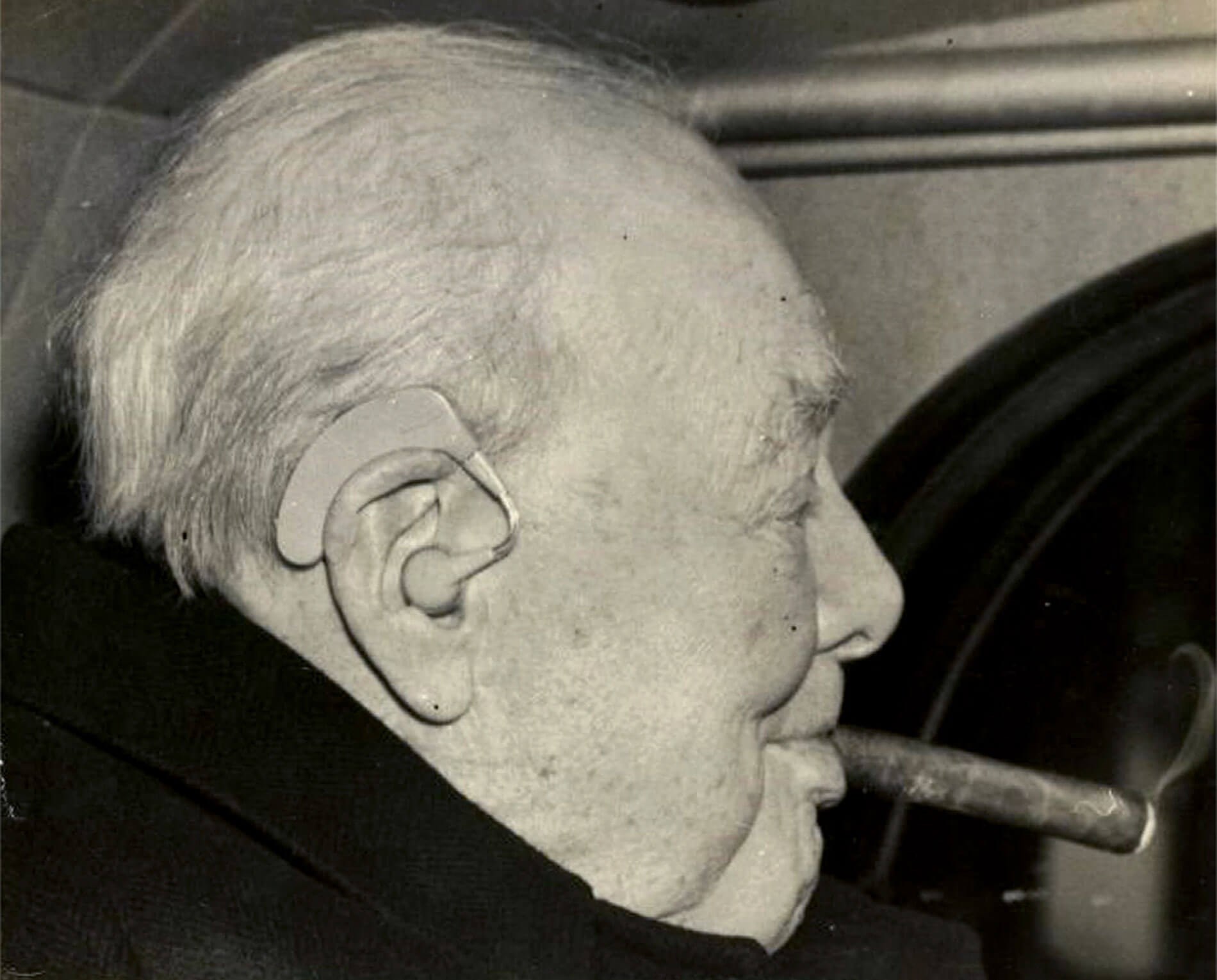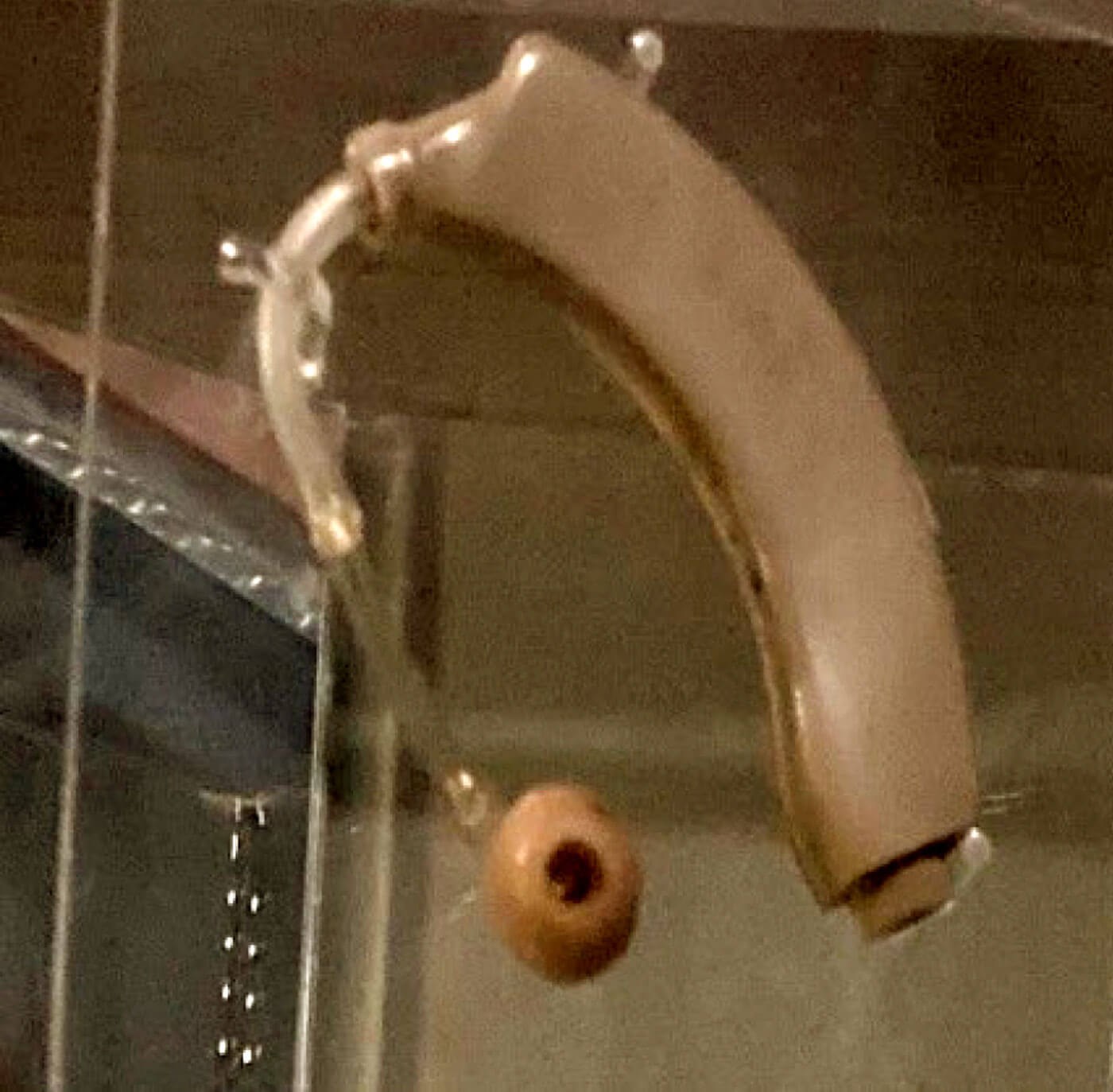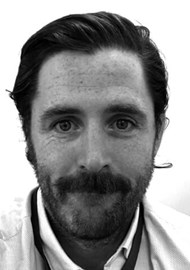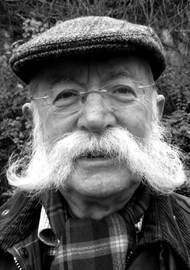Winston Churchill was prime minister of the United Kingdom on two occasions: firstly from 1940 to 1945 and then from 1951 to 1955. He was famed for his acute wit, insight and leadership qualities that helped him navigate the British Empire through some of its most daunting years.
Having confronted Hitler head on, he unfortunately did not address his hearing issues in the same manner. Churchill’s personal physician, Sir Charles Wilson (Lord Moran), first noticed hearing impairment in the wartime leader in late 1944. It was not, however, until 1950 that he had his first pure-tone audiogram. This was performed by Sir Victor Negus and showed a high-frequency loss. However, it was not until 1952 that Churchill was fitted with a hearing aid. Much of the information we have relating to Churchill’s hearing is from the personal diaries of Lord Moran. Churchill himself neglects to address the issue in any of his own published works.


Churchill’s hearing aid (courtesy of Churchill Book Collector).
Lord Moran noted objectively that Churchill was having significant difficulty on the phone, which was a source of considerable frustration, with Churchill declaring, “I can’t hear a word you’re saying” [1]. As his hearing deteriorated into the 1950s, Lord Moran declared how, “he sits huddled up in silence, he can no longer hear what is being said.” This situation was born more out of his stubbornness, as he regularly refused to wear the hearing aid provided to him by Negus.
On one occasion MI5 seriously suspected that this aid had been bugged by the Russians because the company that supplied it, Multitone Electric, was owned by Joseph Poliakoff, who had long-standing links to the Soviet trade delegation [2,3].
He became increasingly dependent on hearing aids at work. The loop system in the House of Commons broke one day and Churchill complained about his sudden difficulty in hearing. As a result, Negus demonstrated the loop system by wiring his dining room at his residence, Hyde Park Gate. Churchill found this so helpful he had his home wired exactly like the House of Commons. By this stage, he had taken a step back from political life, but it is reassuring to know that even after 50 years of marriage, he still had an ear for conversation with his wife.
Churchill was a master of public speaking. It’s evident by the limited photos of him wearing a hearing aid that he was concerned about how others would perceive him wearing one. This would seem to be at odds with the many pictures of him when he donned a red velvet one-piece playsuit in his later years! Churchill was a proud man who overcame the most difficult of circumstances. His hearing may have been a nuisance to him at times, but it certainly never interfered with his duty.
His hearing aid can be found in the Churchill War Rooms in London, beside a quote from Conservative MP Sir Henry ‘Chips’ Cannon: “He has a trick of pretending to be deafer than he is, when he wants to shed a bore.”
References
1. Moran CMW. Churchill: Taken from the Diaries of Lord Moran; the Struggle for Survival 1940-1965. Boston, USA; Houghton Mifflin; 1966.
2. Staab, W. Churchill’s Hearing Loss. Hearing Health Matters.
https://hearinghealthmatters.org/
waynesworld/2014/churchills-hearing-loss/
3. Poliakoff, S. Spies feared Churchill’s hearing aid was bugged. The Times.
https://www.thetimes.co.uk/article/
spies-feared-churchill-s-hearing-aid
-was-bugged-bhrwjkblg
All links last accessed February 2023.






